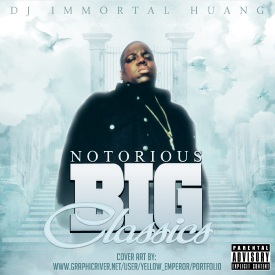
He had told them that: "if we say we're ready to die, we're going to die." It came from A Tribe Called Quest's Q-Tip, who had been speaking to the New York rap radio station Hot 97 in the aftermath of Biggie's death. Few people would go on the record: one person I was able to refer to only as a "prominent east-coast musicīusiness figure" made the point that "If you're an ignorant low-life motherfucker you still will be after you got paid from your rap album - money doesn't buy you a new state of mind." But it would be years later - reading it in Cheo Hodari Coker's book, Unbelievable - that I first came across the sentence that perhaps best summed up what was going on at that time.

Instead of speaking to the formerĬrack dealer about the blurring of the lines between life and art, I talked to some of the music's elder statesmen (Rakim, Kool Herc) about what this all meant for the culture. So instead of interviewing Biggie I spent that Monday writing the inevitable piece about the conflicts his work embodied, and the crisis that was enveloping the music as another of its most iconic characters and conspicuously gifted creators was lost. Who would be the fool who'd try something with the Feds looking on? The irony - and the tragedy not to say the horror - of the situation is, that we may never know the answer. Perhaps he was emboldened by the realisation that his and his labelmates' every move was being shadowed by FBI agents: you could perhaps understand some sense of indomitability that might spring from that. Less understandably, and more troublingly: he'd been warned, both informally and though somewhat more official channels, that he and his Bad Boy Records family's high-profile presence in Los Angeles wasn't perhaps the safest strategy considering the specific tensions that were evident in the city in those months following 2Pac's murder. He even told people that he didn't fancy eating European food (of the many American-rapper stereotypes recognisable to the European journalist, this one is a hardy perennial: it's made all the more depressingly nonsensical when you spend any time at all in the company of American hip hop artists in cities like London and realise that pretty much everything they eat while they're here comes from McDonald's or Pizza Hut). He was enjoying the weather: back east it was cold, in Europe it wouldn't be much better. Following a car accident a few months previously he was walking with a cane perhaps a long-haul flight just seemed too daunting a physical undertaking. In what proved to be his final interviews he said that he'd been having such a good time in California - he'd been there a month, making videos, recording, enjoying himself - that he just couldn't tear himself away. Why didn't he make the flight? The possible explanations rarely rise above the banal. In the wider tragedy of Biggie's demise, the fact he was supposed to have boarded a plane and flown to London some hours before the four shots - three non-fatal - ripped through his unarmoured car door probably just seems like a footnote. I was at home on the Sunday when the phone rang.

The interview had been put in for the Monday morning.

His second LP, Life After Death, was due out late in March, and he was coming to the UK to do interviews and promotion for it at the beginning of the month. In March 1997 I was working at the monthly music magazine Vox, and had managed to persuade them to let me write a four-page feature on Biggie for our edition that came out at the beginning of April. In part, this may have been down to the particular set of circumstances. But when Biggie was gunned down outside a car museum in Los Angeles after a star-studded post-Grammy party, there was that "I remember where I was when I heard" immediacy. I read about Scott La Rock's killing weeks after the fact, in two very similar pieces that Frank Owen wrote for both NME and Melody Maker what turned out to be 2Pac's fatal wounding had an air of "here we go again" to it - it wasn't the first time he'd been shot, and as he clung on in that hospital room most of us probably expected he'd pull through again Jam Master Jay's murder, a little later, seemed the cruellest blow, but he hadn't truly been in the limelight for a while and the details seeped out like a rumour, a credible account taking days to emerge, the details accumulating only gradually, like a view from a hilltop that you can only piece together through gaps in thick cloud.

But the way the untimely deaths of major figures in rap history have been reported have also perhaps meant that a globally unifying moment hasn't been possible. If Biggie Smalls' murder hasn't been described as "hip-hop's JFK moment" that may only be because the music has been spoiled for choice.


 0 kommentar(er)
0 kommentar(er)
